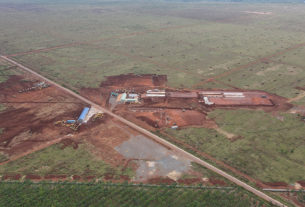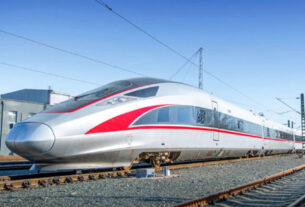Largest IPP in Japan plans to bring clean technology to local coal-fired plants
J-Power, Japan’s largest independent power producer (IPP), is eyeing Thailand as a centre for Asean investment because of the country’s potential growth in electricity demand, and hopes to supply advanced clean technology for use in Thai coal-fired power plants.
The company is studying new technology for the emission of zero pollution from power plants at its research and development centre.
Toshiaki Matsukuma, deputy director of the international business management department, recently said Japan was likely to slow the creation of new power plants at home. J-Power therefore has to pay more attention to overseas investment, both as a consultant for new power-plant projects and co-investing with local interests.
Thailand will be the Asean investment base for J-Power, he said.
J-Power has consulted in the power sector in 63 countries and co-invested in more than 30 power plants. As of December 2009, the company was co-invested in 15 Asian projects, including in Thailand.
Matsukuma said that although J-Power did not yet have a concrete plan to take part in new power-plant projects under the Kingdom’s Power Development Plan 2010, it hoped to bring the new clean technology to the country.
Akihiko Sakurai, president of J-Power Generation Thailand, said the company operated an IPP project with its Thai partner Gulf Electric in a natural-gas-fired power plant in Kaeng Khoi, Saraburi. The plant commenced operations in May 2007 with a capacity of 1,468 megawatts.
Another IPP project is in the Rojana Industrial Estate in Ayutthaya. The project has been relocated from Chachoengsao because of protests against its establishment in the province.
The company is conducting an environmental-impact assessment, which is expected to be completed next year. Construction is to begin around the middle of next year, with operations scheduled to commence in 2015.
J-Power Generation Thailand is also constructing seven small- power-producer plants, which will be commissioned during 2012-13.
Matsukuma said J-Power also faced protests from local residents in Japan when it planned to construct a power plant. The way to solve the problem is to make the villagers understand that clean power plants can co-exist alongside communities.
Meanwhile, the company has to invest in the most advanced clean technology to operate the plants, he added.
zero emissions
He said the company was researching technology that would release zero carbon dioxide (CO2) and oxides of nitrogen and sulphur into the atmosphere.
It will start a demonstration plant to experiment with zero CO2 emission, as it wants to operate the cleanest power plants in the world.
J-Power invested 250 billion yen (Bt93 billion) to renovate the Isogo coal-fired thermal power station nearly a decade ago, and claims that the upgraded 1,200MW plant uses the cleanest technology in the world.
IRPC studied and adapted the clean operation of Isogo to its 220MW gas-fired power plant, which started operation last month.
Isogo director Hideki Tsukuda said the plant used technology that would reduce the emission of CO2 and oxides of nitrogen and sulphur to a lower level than for traditional technology.
Nitrogen-oxides waste will be extracted as nitrogen, which is not harmful to the environment, before being released into the atmosphere, while oxides of sulphur will be transformed into sulphuric acid and sold as a by-product. Ash from the generation process will be sold for cement production, he said.
Pailin Chuchotaworn, president and chief executive officer of IRPC, said the company’s combined heat and power (CHP) project, of which the first unit commenced generation in January, would run all six units in July. After that, the company will not use bunker oil for steam or power generation.
The CHP project will reduce sulphur-oxides emissions by 32 tonnes per day, and CO2 by 420,000 tonnes per year.
The project’s carbon credit will be sold under the Clean Development Mechanism.
Source: The Nation (Thailand)


